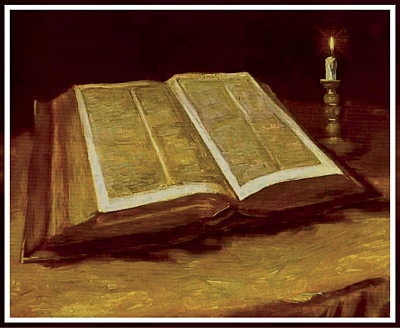God wants us to know Him. The different names God gives for Himself in His written Word are one of the ways He helps us understand Him. As stated in an earlier article in this series, “A name is that by which a person or thing is made known—it describes, defines, or declares them.” God uses a variety of names in the Bible to help describe, define, and declare Himself. As we study and gain a greater familiarity with the names of God used in the Bible, we can grow in our knowledge of God.
The name we will examine in this article comes from the Hebrew words Jehovah-tsebaoth, which are translated “Lord of hosts.” Learning the meaning of this name will bless us with a deeper appreciation of our heavenly Father and inspire us as we further enrich our understanding of God’s nature, character, and inherent greatness.
As we begin this study, let’s briefly reexamine the meaning of the Hebrew word Jehovah. Jehovah means the Eternal One. Jehovah indicates God’s covenant relationship with His people. When Jehovah is used, it denotes His relationship to what He has created.
If you look up the word “host(s)” in a concordance, the corresponding Hebrew word will be in its dictionary form (singular) as tsaba. In the Hebrew manuscripts, this word appears in its plural form, tsebaoth. Reference books transliterate this Hebrew word in various ways; for this article, we will use the spelling tsebaoth to represent the Hebrew for “hosts.”
Now, let’s briefly look at the definition of tsaba. According to New Wilson’s Old Testament Word Studies, the basic meaning of tsaba is “…an army…specially of angels, and of the heavenly bodies….” In this light, our God as the Lord of hosts is Lord over a great multitude, both in the heavens and on earth.
References to other occurrences of this title, Jehovah-tsebaoth, show a connection to Israel. This title of God occurs over two hundred times, and the great majority of these occurrences are in the books of the prophets (Isaiah, Jeremiah, Micah, Nahum, Habakkuk, Zephaniah, Haggai, Zechariah, and Malachi). These prophets, before and after being led captive out of the land, turned to the Lord of hosts for comfort and deliverance when Israel was in peril—when Israel had turned away from God and was feeling the consequences. Even though Israel and Judah were both eventually led captive out of their land, God ever remained faithful to His people. As the Lord of hosts, there is help in Him.
Let’s examine the first two uses of the title “Lord of hosts,” Jehovah-tsebaoth.
I Samuel 1:3:
And this man [Elkanah] went up out of his city yearly to worship and to sacrifice unto the Lord [Jehovah] of hosts [tsebaoth] in Shiloh….
When Elkanah came out of his city to worship and sacrifice in Shiloh, he did so unto the Lord of hosts. This was a man who viewed God with the greatest respect and admiration. In his heart, he recognized and acknowledged the God of Israel as the Lord of all the hosts of heaven and earth.
Now, Elkanah was married to a woman named Hannah. Elkanah and his wife were a wonderful believing couple. They loved God and they loved each other. However, they had a very challenging situation in their life and marriage. Hannah was barren. This was especially difficult in ancient Biblical culture, since there was great value and importance placed on childbearing, especially on producing sons.
The second use of “Lord of hosts” shows that Elkanah’s wife Hannah vowed a vow in prayer unto God, the Lord of hosts. Hannah also viewed God with the highest regard and appreciation for His Lordship. Her prayer was for God to bless her with a son. Her vow was that if the Lord of hosts would bless her with a son, she would dedicate the child in service to Him.
I Samuel 1:11:
And she [Hannah] vowed a vow, and said, O Lord [Jehovah] of hosts [tsebaoth], if thou wilt indeed look on the affliction of thine handmaid, and remember me, and not forget thine handmaid, but wilt give unto thine handmaid a man child, then I will give him unto the Lord all the days of his life, and there shall no rasor come upon his head.
What we are seeing in these verses is that Elkanah and Hannah viewed God as being Lord in a grand and magnificent way. As such, Hannah prayed for God to bring to bear His vast resources to help them in their time of need. God, the Lord of hosts, indeed blessed her with a “man child,” Samuel, and he grew up to become one of the great prophets of the Old Testament.
At the time of these first two occurrences of Jehovah-tsebaoth in the Book of I Samuel, the Word of the Lord was precious (I Samuel 3:1). There was not much being shared. Eli, the high priest, had honored his sons above God (I Samuel 2:29), and his sons had made Israel to abhor the offering of the Lord (I Samuel 2:17). Although Israel’s priest and his sons had failed, Elkanah and Hannah remembered that the Lord could not fail them. Though Israel was without a godly leader, there was still Jehovah-tsebaoth—the Lord of hosts….
This is an excerpt from the May/June 2014 issue of The Way Magazine.
Copyright© 2014 by The Way International. All rights reserved.
For more information on subscribing to The Way Magazine, Click Here

